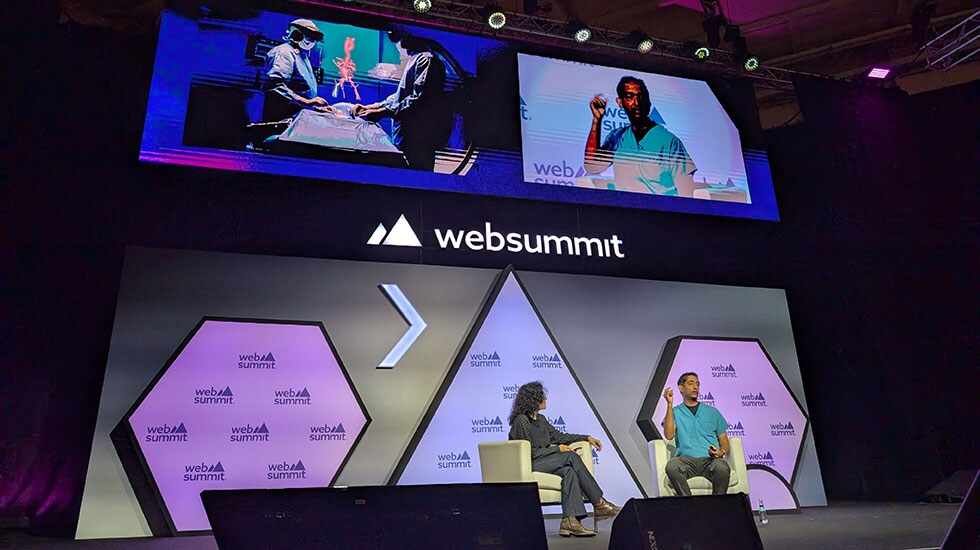Reshaping healthcare in the face of mounting global challenges
Philips’ Atul Gupta talks about innovation in healthcare technology at WebSummit 2024
Dec 19, 2024 | 2 minute read
At Web Summit 2024, Dr. Atul Gupta, Chief Medical Officer for Diagnosis & Treatment at Philips, took to the stage in a fireside chat with Susana Samhan Arias, Director of EFE Portugal, one of the largest newswire services in the world, and the largest Spanish language news agency. Together, they explored how advanced technologies such as artificial intelligence (AI), augmented reality (AR), and robotics are reshaping healthcare in the face of mounting global challenges.
WebSummit’s main event, held annually in Lisbon, is a leading global event for innovation, drawing diverse experts from technology, healthcare, and beyond. Over 70,000 assemble annually, to collaborate with change-makers, innovators and business leaders. In this dynamic and collaborative setting, Atul highlighted the urgent need for technological transformation to address the pressures facing healthcare systems worldwide.
Addressing Healthcare’s Pressing Challenges
Global healthcare is at a critical juncture. Aging populations and the growing prevalence of chronic diseases are straining resources, while workforce shortages threaten to leave millions without adequate care. By 2030, a deficit of over 10 million healthcare professionals is projected globally [1], compounding issues such as clinician burnout.
“Healthcare systems and workers are under immense strain,” Atul Gupta shared during the session. “We must go beyond traditional solutions and reimagine care delivery using the full potential of today’s and tomorrow’s advanced technologies. These technologies will effectively give our care providers new and amazing superpowers.”
Technology’s role in driving transformation
Philips is spearheading innovation to address these challenges. AI-powered tools and telepresence systems are already transforming stroke care, where rapid diagnosis and treatment are crucial to saving lives. At the same time, AR, robotics, and automation are being explored for improved precision and workflows in minimally invasive procedures, delivering better outcomes while reducing recovery times. All while increasing access to care.
Looking forward, Philips envisions a future where intelligent operating rooms combine such technologies equipping physicians with tools to diagnose and treat complex conditions more efficiently. These advancements are not just improving care—they are making healthcare more equitable and sustainable globally.
A call for collaboration
Atul emphasized the importance of interdisciplinary collaboration in solving these challenges. From engineers and developers to healthcare professionals and policymakers, he underscored that creating impactful solutions requires diverse expertise. And seeking insights from our next generation of doctors, namely the Gen Z’s and Gen Alpha’s.
“Technology alone is not enough. Half of the global population still lacks access to basic healthcare. It’s a reminder that we must ensure that these advancements are scalable and equitable, reaching those who need them most,” Atul Gupta concluded.
As the demands on healthcare systems grow ever more complex, Philips continues to drive innovation that empowers caregivers, improves workflows and outcomes, and ensures a healthier future for all.
Sources






